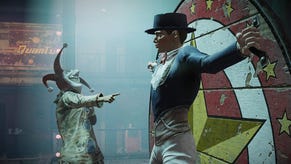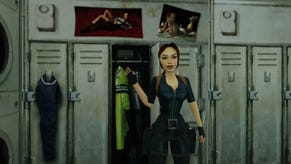Kurzweil "looking forward to Spore"
Tells devs how to think about the future.
Inventor and futurist Ray Kurzweil didn't really talk about games much in his GDC keynote speech, "The Next 20 Years of Gaming", but he did mention that he is "looking forward to Spore".
This is because he believes it incorporates concepts similar to the ones he was presenting - and the keynote, which captivated the massive Esplanade Ballroom at the Moscone Center, was certainly fascinating.
The speech had been introduced by GDC organiser Jamil Moledina as a chance to look at "questions not normally answered in the rush to get the next game out", and Kurzweil's primarily focus was the importance of using exponential rather than linear progression models to predict circumstances in the future.
The future is not inherently unpredictable, he said. It may be hard to predict the path of "specific projects" - for example how Microsoft's potential acquisition of Yahoo might work out - but that for broader trends like the growth of the Internet it's possible to make strong predictions.
On a linear graph, the growth of the Internet in the last decade makes it look as though it came from nowhere, he said, but it was predictable as an exponential progression. He had lots of graphs to back this up, and tried to illustrate that he was not simply selecting things to fit his model by working on other people's lists and data.
He also pointed out that he's got it right in the past, predicting the Internet and that the Soviet Union would be crushed by the decentralisation of communications technology.
Kurzweil said that he felt that "the word 'game' is unfortunate" and inappropriate, much as "artificial intelligence" or "virtual reality" are slightly misleading tags. He declared that VR is "ultimately going to be fully competitive with reality", and that nanotechnology will be key to the experience, controlling our sensations.
He also joked that perhaps we'll need to put a little reality window in the corner of our view to avoid bumping into things - especially since we seem to struggle so much with the Wiimote.
In terms of game content, he addressed the concept of the Uncanny Valley - where visuals are so realistic that it becomes uncanny and a bit creepy, with minor telltale signs hugely obvious - by saying that he believes gaming will only occupy it for a short time.
Throughout the speech, he used examples from other industries and his own work as an inventor to back up the importance of the exponential progression model, pointing out that the 15-year project to map the human genome was at 1 percent after 7 years, which fits the progression model fine, since it would then multiply exponentially to 100 percent within the remaining time.
He also demonstrated speech recognition and translation technology via video, and performed a live demo of a mobile phone for blind people that can read books, signs and paper from any angle and in any lighting conditions, even in spite of problems with the source paper.
In all honesty, it made us feel a bit stupid, and went down very well. "Kurzweil said almost nothing about games, but it was still great," was one account overheard on the way out, and the audience - including the likes of Sony's Phil Harrison - certainly stayed to the end, delivering a big ovation with many on their feet.
Sadly there was no discussion of flying cars, but on the plus side he did say we won't need oil or coal within a few years thanks to nano-engineered solar panels. Wicked.




.png?width=291&height=164&fit=crop&quality=80&format=jpg&auto=webp)



